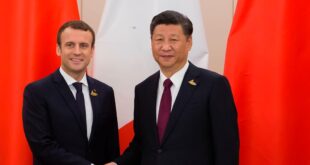Muhamad Yehia
DAKAR, Senegal (AP) — Polls closed in Senegal on Sunday for a parliamentary election set to determine whether the country’s newly elected president can carry out ambitious reforms.
More than 7 million registered voters in the West African country were choosing 165 lawmakers in the National Assembly, where the party of President Bassirou Diomaye Faye does not hold a majority.
Faye, who was elected in March on an anti-establishment platform, says that has blocked him from implementing the reforms he pledged during his campaign, including fighting corruption, reviewing fishing permits for foreign companies, and securing a bigger share from the country’s natural resources for the population.
In September, he dissolved the opposition-led parliament, paving the way for a snap legislative election. His party is facing the Takku Wallu opposition platform led by former President Macky Sall, alongside 39 other registered parties and coalitions.
Polls opened at 8 a.m. and closed at 6 p.m. local time. The first provisional results were expected by Monday morning, but the final count will only be published later in the week.
Related Stories
Senegal enters last day of tense campaign ahead of key legislative election
Senegal’s ruling party secures majority in parliament, paving the way for ambitious reforms
Senegal’s governing party poised for parliamentary majority in boost for reform agenda
Faye’s political party, PASTEF, needs at least 83 seats in order to gain a majority in the assembly.
Over 50 countries go to the polls in 2024
The year will test even the most robust democracies. Read more on what’s to come here.
Take a look at the 25 places where a change in leadership could resonate around the world.
Keep track of the latest AP elections coverage from around the world here.
Analysts say it has a high chance of securing that, given its popularity and Faye’s margin of victory in the March presidential election.
Faye, 44, was elected with 54% in the first round, becoming Africa’s youngest elected leader, less than two weeks after he was released from prison. His rise has reflected widespread frustration among Senegal’s youth with the country’s direction — a common sentiment across Africa, which has the world’s youngest population and a number of leaders accused of clinging to power for decades.Over 60% of Senegalese are under age 25 and 90% work in informal jobs. Senegal has been hit by skyrocketing inflation in recent years, making it difficult for them to get by.
“These elections could change a lot for me, like all other young people. We all need work,” Aita Pene, a 26-year-old student said after casting her vote in the Ouakam neighborhood of Dakar.
“We need to be able to live a good life in Senegal so we don’t have to go abroad to find it,” she added.
Senegal is a major source of irregular migration to Europe, with thousands leaving every year on rickety, artisanal fishing boats in search of economic opportunities.
The campaign for the legislative election was marked by sporadic clashes between supporters of different parties. The headquarters of an opposition party were set on fire in the capital, Dakar, and clashes have erupted between supporters in central Senegal in recent weeks, the interior ministry said Monday,
On Tuesday, Ousmane Sonko, the country’s prime minister who helped catapult Faye to victory, denounced attacks against supporters of PASTEF in Dakar and other cities.
“May each patriot they have attacked and injured be proportionally avenged. We will exercise our legitimate right to respond,” he wrote on X, before back-pedaling and asking his supporters to remain peaceful in a speech later that day.
Last month, Sonko’s vehicle was attacked with stones as clashes broke out between his supporters and unidentified attackers while he was campaigning in Koungueul, in the center of the country. The leader of an allied party, former minister Malick Gackou, had his arm broken in the incident, according to local media.
Faye called for peace and urged his supporters to respect the results of the election regardless of the outcome.
“There will be winners and losers but in the end, it is the people that win,” Faye said after casting his vote in his native town of Ndiaganiao, more than 100 kilometers (60 miles) east of Dakar.
“We have an obligation to preserve the international community’s view of our democracy. We are an exception and we must continue to protect that,” he added, referring to Senegal’s reputation as a stable democracy in West Africa, a region rocked in recent years by coups and attempted coups.
The presidential election in March had tested this reputation. Both Faye and Sonko had been imprisoned on charges that were largely seen as political, leading to months of protests that were unprecedented in Senegal. Rights groups said dozens of people were killed and about 1,000 people were jailed.
Opposition supporters also had been concerned that Sall would seek a third term in office despite being prevented from doing so by the constitution.
After a bid to delay the election was blocked by the courts, the government released hundreds of political prisoners, including Faye and Sonko, less than two weeks before the vote. Faye was catapulted into the presidency when Sonko — who was barred from running due to a previous conviction — put his backing behind the political novice and Faye easily beat the candidate backed by Sall.
 موقع وجه أفريقيا موقع وجه أفريقيا هو موقع مهتم بمتابعة التطورات في القارة الأفريقية
موقع وجه أفريقيا موقع وجه أفريقيا هو موقع مهتم بمتابعة التطورات في القارة الأفريقية


